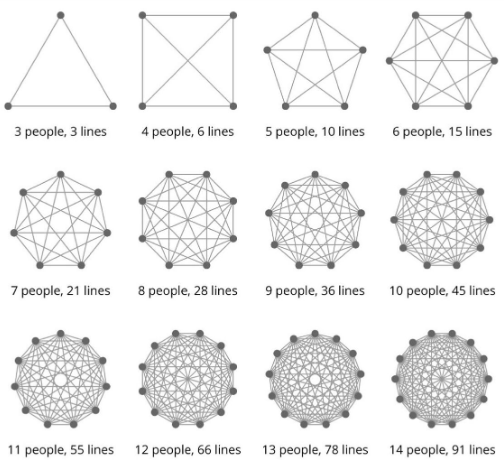Complexities of B2B sales, further fuelled by the economic downturn
This article was first published on LinkedIn. Subscribe to Melanie Mills' 'Bringing Home the Bacon' newsletter to read her articles as soon as they are published.
There’s been a lot of discussion about how the recession impacts individuals, but when you’re in sales it’s obvious that it is also impacting businesses. From my perspective, it’s more often lengthening the sales cycle and it’s becoming more important how AEs build and nurture relationships internally and externally.
B2B Sales are in general far more complex than B2C for many reasons but mainly due to multi-stakeholder involvement, adding in remote working, the great resignation and integration considerations due to technology layers! Gone are the days of a standalone system. Any successful AE role will need to develop into a strategic chess player influencing and facilitating from both sides of the fence.
Expertise on every level
Business development is all about relationships, so trust and having the ability to put the right solution in front of the right people at the right time are both fundamental. In an economic climate like the current one, any one of those stakeholders can become a blocker to the result you want to achieve. So it becomes all the more important to give buyers across an organisation what they want specifically for their persona at the earliest possible stage.
There’s a lot of data behind what makes somebody purchase. One interesting statistic I found that supports this is that 62% of business decision-makers think the most important thing salespeople need to do is answer complex questions at an early stage, which in turn shortens the cycle. That means being a product expert, being well researched and understanding the solution you are providing and importantly tailoring it to the person you are speaking to.
Collaboration is king
The easiest way to get answers is to get the right people in the room. Think about what result you want to achieve and act accordingly, be proactive and not reactive! Think ahead and pre-empt what is required if the COO is in the room, what questions will they ask? Do you need to also bring in the equivalent? Are you the right person to answer questions you know are coming, or should you have those experts from your company, mirror those who are invited and create a deeper level of trust and understanding?
In many orgs having that level of collaboration and ability to pull upon C Suite might not be feasible – that's usually the joy of dealing with an SME’s or agile tech business. So if not in that fortunate position, draw upon the next level down or have documents to support your case that speaks their language.
Anticipating people’s needs means that you can get to your result in a shorter amount of time, and with more goodwill from people who feel that you’re respecting their time.
Collaboration and communication become all the more important, internally you must have those relationships in place to prevent decision fatigue on the client’s end that can arise out of weighing the multiple options and a legitimate need to make sure that every solution purchased is truly worth the money. Purse strings are being tightened with less VC money available especially in FinTech.
With multi-stakeholder buy-in required it means that the AE needs to act as a guide to support the prospect who is not making the decision alone. Building business cases that support their requirements effectively show ROI, mitigates Risk and speaks the language of the ultimate decision-maker.
Having a STRONG Champion, also known as a cheerleader, who is driving the adoption for you is vital. I see myself doing this when I know a new system is required, we are currently investigating a way to increase output by creating efficiencies by building out our sales tech. I ahead of the seller am sharing the benefits with each team member, championing the uptake. Joy for them and a clear sign for buy-in.
Below is evidence of the complex web that is created the more stakeholders/personas you have and how many lines of communication and therefore touch points end up feeding into the process.

Approach with confidence
79% of buyers said they were more likely to purchase when the sale is consultative, therefore ensuring throughout the process that your approach is just that and communication is strong is vital. Simple things like an agenda sent in advance to maximise the meeting time you have make a huge difference. It’s a two-way process, so establishing and agreeing on set deadlines and sticking to them becomes especially important as people are becoming more risk-averse and time-poor.
Trust is fundamental and bringing the right people in at the right time is crucial, delivering from day one will build that Trust through action – and don’t make the mistake of letting the client take the lead. Positioning yourself as that expert guide on the journey, understanding their needs and timelines whilst navigating the process that your business can deliver against allows the client to evaluate the solution on their terms, in their time without the feeling of being harassed.
At a time when businesses can’t afford to make any missteps, and attention should be focused you don’t want to lose a potential sale because you weren’t able to identify the correct stakeholders to bring in or further slow the process down resulting in a loss rather than celebrating the win.



